Is Nairobi, Kenya Safe? 6 Essential Tips for Travelers
Is crime in 'Nairobbery' really that bad? Dave Stamboulis shares his tips on avoiding scams, theft, and safety for women and LGBTQ+ travelers in Kenya's capital city.
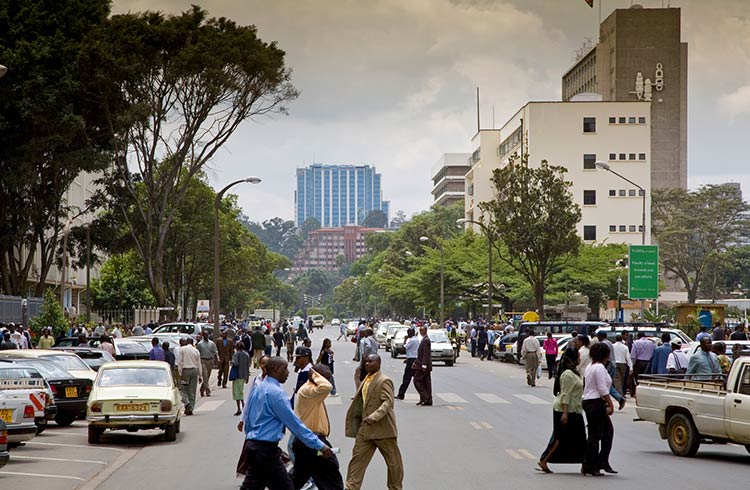 Photo © Getty Images/Buena Vista Images
Photo © Getty Images/Buena Vista Images
On my first trip to Nairobi in 2005, I spent my first few nights petrified. Expats had not half-jokingly referred to it as ‘Nairobbery’, and my guide book had enough warnings to fill an entire chapter.
Even though I was staying in the heart of downtown, I took a cab just half a mile down the road to go out to dinner. On the third night, my hotel receptionist asked me why I was doing this. After I told him, he chuckled and told me I could safely walk to the restaurant, by walking on the right side of the street for 100ft (30m), then on the left for the next 100ft (30m), and so on, so I was walking near where security guards were posted.
Safety for visitors to Kenya has drastically improved since that first trip, and Nairobi has become an enjoyable stopover on the safari and beach loop, noted for great cafes, bars, and shopping. Yet there are still steps every first-time visitor to Kenya’s capital should take to ensure their holiday stays safe.
Here are six tips to help steer you towards an incident-free vacation.
- Get to know the neighborhoods in Nairobi
- Crime in Nairobi
- Terrorism threats in Nairobi
- Safari scams in Nairobi
- Other common scams in Nairobi
- Safety for LGBTQ+ travelers and women
- Top tips to stay safe in Nairobi
1. Get to know the neighborhoods in Nairobi
While you are unlikely to visit Africa’s biggest slum, Kibera, unless on a tour with a local guide, you should be familiar with other parts of the city that are no-go zones. Eastleigh is noted for muggings and armed robberies and should be avoided. The US Department of State has given all Eastleigh and Kibera a Level 3 Reconsider Travel warning.
Nairobi Central and City Square (as far east as Moi Avenue) are busy and relatively safe by day and even more well-lit and policed at night, but it’s best not to travel alone. Take a taxi called by your hotel if unsure.
On my most recent visit in 2018, I went out at night using public transport in Nairobi. However, as the nearest return bus stop to my hotel was not considered safe, the hotel staff told me to get off two stops earlier and walk the extra five minutes down a safe street that had security guards.
Ask if in doubt, and know that locals will always help you out.
2. Crime in Nairobi
Keep your belongings safe and avoid taking any unnecessary expensive items out of your accommodation. Stash your stuff safely.
You’re better off saving your big DSLR camera for the safari. While in Nairobi keep it locked up in your hotel along with excess cash, credit cards, and passports. Only carry the amount of money you need when you head out, especially at night.
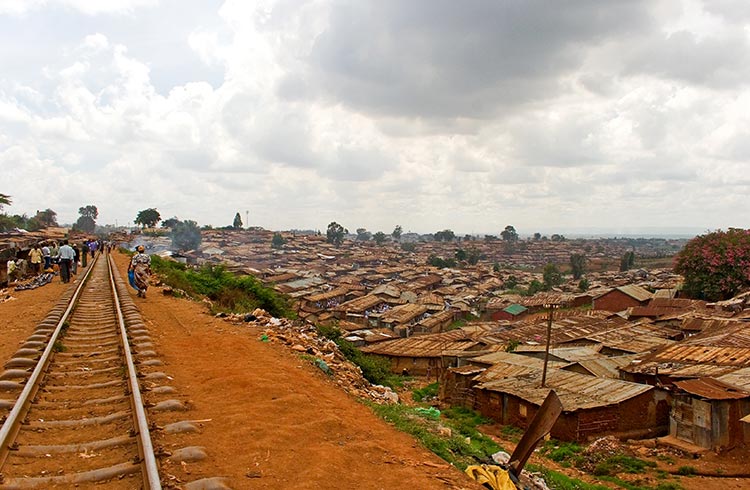
3. Is terrorism a threat in Nairobi?
The biggest headline-grabbing and continuing concern in both Nairobi, and Kenya in general, are terrorist-related attacks. The Somali militant group Al-Shabaab has attacked military and tourist targets in Kenya several times over the years, including a Jomo Kenyatta Airport restaurant, the Dusit D2 hotel, as well as the 2013 attack in Nairobi on the upscale Westgate Shopping Mall.
While Kenyan security has been beefed up in all of these places, it pays to stay alert, ask locals about safety precautions, and check the most recent postings on your country’s Embassy or Government website. American citizens can enroll in the Smart Traveler Enrollment Program which sends direct updates on any alerts or situations to monitor.
The targets of attacks are often upmarket hotels, the US Embassy, or fine dining restaurants, so you might consider staying in a hostel rather than a smart hotel. Always stay alert and remember that these incidents are unusual occurrences.
4. Safari scams in Nairobi
Almost everyone coming to Kenya has a dream safari on their mind. Don’t be one of the few who fall prey to offers that are too good to be true.
Cut-price safaris are cheap for a reason (bad accommodation, vehicles, food), and there are even those that will take your hard-earned cash and then disappear into the bush. Before booking:
- Do plenty of research and comparison
- If planning from abroad, make sure that the agency’s website uses https and is professional
- Read lots of reviews and social media posts
- Don’t succumb to any requests for advance payment via Western Union.
Note that while touts who approach you on the street with safari offers may be legit, you will pay a bit extra as they are working on commission. It’s best to research, make a list of potential companies, and walk into an agency on your own.
On my recent trip to Kenya in 2018, my partner and I went into several tour companies more than once, and got full itineraries to compare, information on types of food included, exactly where we’d be sleeping (in or outside of the parks), and the maximum number of occupants in the jeep, which resulted in a trip we were happy with.
5. Other common scams in Nairobi
Known as the “Nairobi Bump,” someone on the street will “accidentally” crash into you, and then profusely apologize, all the while having lifted your wallet or phone while you were distracted.
Other “softer” scams include requests for help buying groceries, school money, or other cases of taking advantage of your good Samaritan tendencies. Best to just shake your head and walk away.
Note that this “sell” might also happen while you are in a local matatu (minivan) waiting to leave if someone spots you as a non-local trapped in a hot van with the window open. Again, politely ignore them and make sure to keep your backpack at your feet or somewhere it can’t be snatched through the open window.
6. Is Nairobi safe for women and LGBTQ+ travelers?
The Kenyan Penal Code criminalizes homosexuality, with a recent ruling upholding a law with a punishment of 14 years in prison for offenders.
While Nairobi may look like any other modern city, it’s best to save revealing clothes and displays of intimacy for your hotel’s private spaces. For single women travelers, Nairobi and Kenya are far easier to travel in than many places in the Middle East or India, but if you are heading to the beaches in Mombasa, expect to be pestered or catcalled by young men.
Here are our top tips to stay safe in Nairobi
- For 24-hour help, the Tourist Helpline is available for all situations.
- Leave flashy jewelry and other valuables at home.
- Don’t stick out like a sore thumb. If you need to check Google Maps on your phone for directions, duck into a shop, hotel, or storefront to do so.
- Taxi apps are common and secure. Nairobi not only has Uber, Bolt, and Little Cab, but a host of app-ordered cabs to choose from.
- Carry your passport and credit cards separately from your wallet, preferably in a hidden money belt. If you are ever mugged, don’t resist – your life and your holidays are far more valuable than your cash.
- Don’t leave home without travel insurance, even if it’s the one item in your luggage that you hopefully never have to use.
Before you buy a travel insurance policy, check your government travel warnings and health advice – there may be no travel insurance cover for locations with a government travel ban or health advice against travel.
Related articles
Simple and flexible travel insurance
You can buy at home or while traveling, and claim online from anywhere in the world. With 150+ adventure activities covered and 24/7 emergency assistance.
Get a quote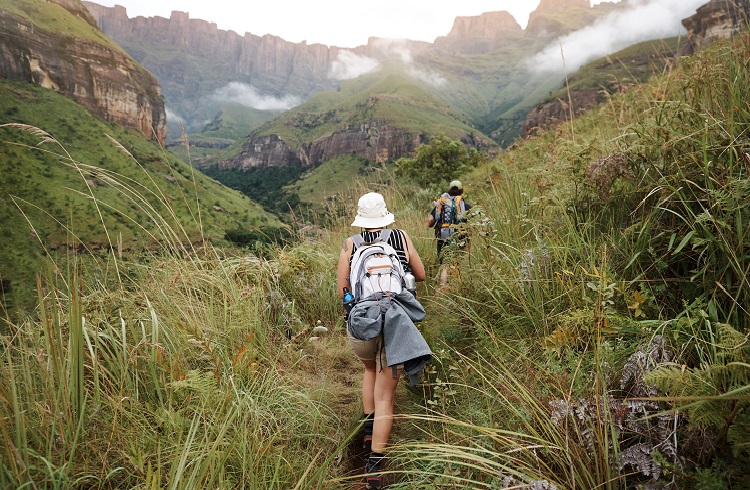
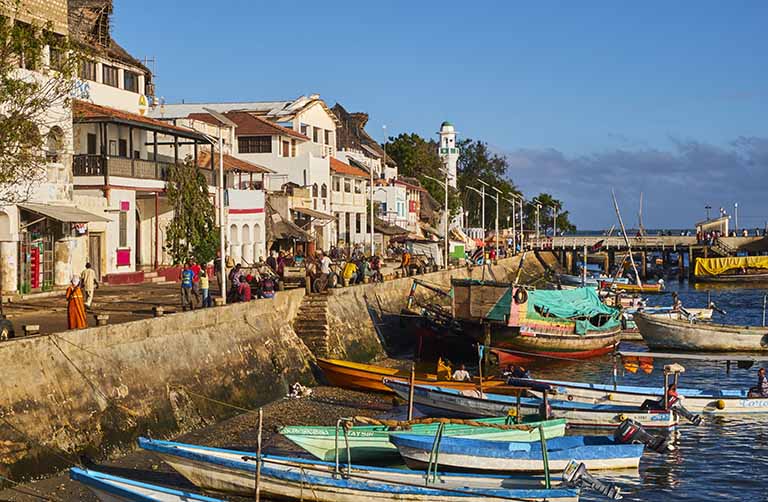
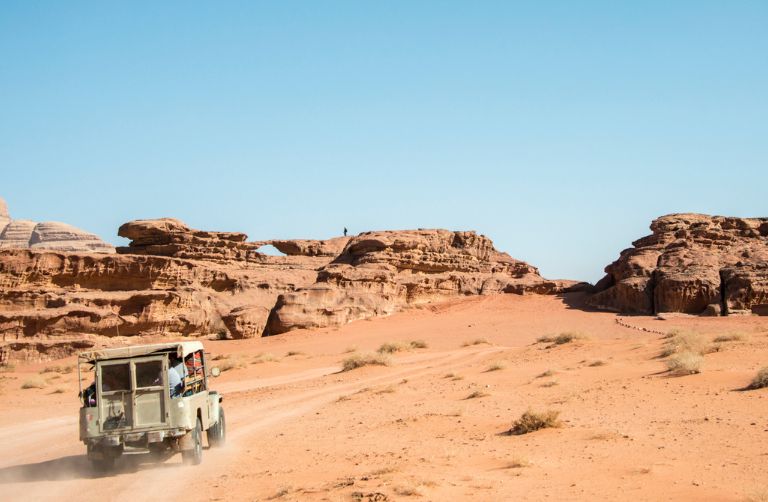
6 Comments
I am a Nairobian born and breed. First you now don't need to carry cash in Nairobi- maybe just a few small denomination notes to tip servers; once you reach the airport you can buy a Safaricom sim card from their shops (they are plenty) and register for Mpesa with your passport. EVERYBODY in Nairobi has Mpesa, or access to it even the cleaning lady! This will allow you to pay for almost anything via your mobile phone, your plan ticket, your meal, shopping you name it.
Second if you want an LGBTQ friendly club to hung out go to Westland's, Karen area, you will find a few there
Hi! I have lived in Nairobi near the International School of Kenya, and the area where i lived was a gated compound with all the basic amenities. But outside the compound after dark it was usually dangerous to drive to Nairobi CBD. And police in Nairobi are one of the worlds most corrupt, they will stop you randomly and demand bribes and if you don't pay them on spot they will threaten you but usually they will just shrug they shoulders and let you go. Also Nairobi has some good shopping malls which are okay by African standards but don't match the ones you find in Western and Northern Europe. All in all Nairobi as city is OK to live if you just live in a gated compound with 24/7 security. Now i live in Norway and i have to say that after Nairobi Norway feels like heaven on earth where you don't need to worry too much about your safety and you can trust the police
Hi! May we ask which company did you go with for your safari trip and how your experience went? Thanks!
Hi. I have lived and travelled to Kenya often for months at a time. Have had spent a lot of time in Nairobi. If one is aware, careful and blends in with the locals, you will never have problems. People extremely warm, friendly and helpful. Was lost one time and a gentleman offered to take me to the address I was trying to find.
Just back from a 10 day safari in Kenya plus 3 days in Nairobi. Our hotel in Nairobi overlooked the national park across the JKIA Expressway. The hotel was gated and had 24/7 security, they literally would not let us walk off the grounds, in fairness, there is little of tourist interest on that end of town, being in an industrial/wholesale district. No problems when we went to shopping areas in the business district. We took a tour that was marketed through my college alumni association, took the train to Voi and flew to Maasai on an Air Kenya turboprop. Stayed at three bush resorts and a camp - cleanliness and food met first world standards but - I have a bit of a disability - there is nothing like ADA or disabled access here. Staying at a resort with rooms 15 meters in the air meant climbing 15 meters of stairs - every time. Rooms are small, air con is nonexistent and the locals believe ice water is a health hazard (Sorry, this water is too cold, let me get you a warmer one!). Talked with people who were on a National Geographic tour, they stayed in the same places, road the same Toyota Land Cruisers and paid three times as much to have an American guide rather than a Kenyan one.
Ready to take your project online or upgrade your current setup?
We’ve got you covered. Our package includes a powerful server,
a trusted SSL certificate for secure connections, a flexible VPS for growing needs,
and reliable hosting to keep everything running smoothly.
It’s a simple, all-in-one solution—no tech stress, just performance you can count on.
Whether you’re launching a startup or scaling up, we’ll help set everything up and keep it optimized.
Let’s make your online space fast, safe, and ready for anything. Reach out today to get started—no pressure, just possibilities.
https://dollarspace.pw